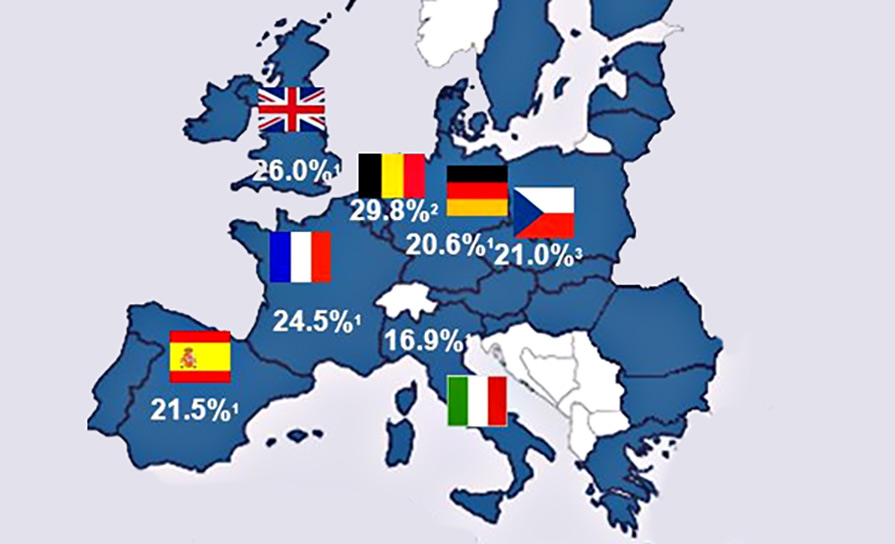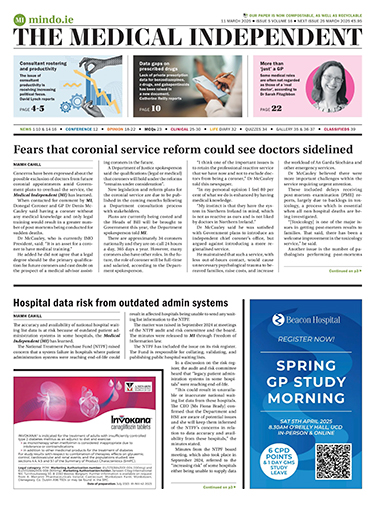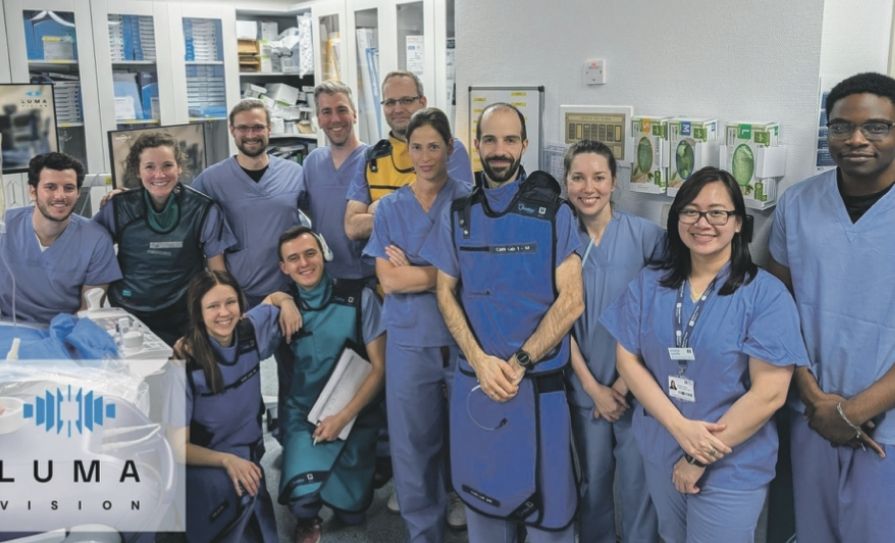A study published on 10 January in the Annals of Surgical Oncology Journal https://link.springer.com/article/10.1245/s10434-020-09494-3 has demonstrated that implementation of a multidisciplinary (MDT) surgical team, comprising gynaecologic oncologists and colorectal, hepatobiliary and upper gastrointestinal (GI) surgeons, complemented by a meticulous approach to ensuring that the patient is in optimum clinical condition prior to surgery, results in significantly improved rates of complete resection of ovarian cancer. This approach to aggressive surgery for ovarian cancer is based on the fact that ovarian cancer often presents with widespread disease throughout the abdomen and surgery can often involve removal of multiple organs and the entire peritoneum (the inner lining of the abdominal cavity).
Speaking about the approach to completely resecting ovarian cancer, Professor Donal Brennan, UCD Professor of Gynaecological Oncology and Consultant Obstetrician and Gynaecological Oncologist at the Mater and St Vincent’s University Hospitals explained ‘Surgical resection remains the cornerstone of ovarian cancer management. The goal of surgery in ovarian cancer is to remove all visible disease and this can involve extensive resections including hysterectomy, removal of the ovaries, rectum (and other parts of the bowel), spleen, gallbladder and stripping or resection of the diaphragm. Since 2017, in the UCD Gynaecological Oncology Group (UCD-GOG) based at the Mater and St Vincent’s University Hospitals, we identify the right specialist surgeon to conduct each part of the resection making it a much more sustainable and safer approach to surgery.’
The study examined two cohorts of patients;
- Cohort A was a retrospectively collated group of patients that presented with ovarian between 2006 and 2015 and who were generally offered neoadjuvant (delivered before the main treatment, to help reduce the size of a tumour) chemotherapy
- Cohort B was a prospectively collated group of patents with Stage 3&4 ovarian cancer attending for CSR (Cancer Statistics Review) between 2017* and 2019 (*A national ovarian cancer database comprising patient demographics, clinicopathological information, operative outcomes and oncological outcomes was put in place in 2016)
- All of the patients in Cohort B underwent a standardised preoperative assessment for medical optimisation. For example vaccinations were given two weeks before surgery if splenectomy was anticipated and the patients received 24 hrs of prophylactic antibiotics
- The surgical team for Cohort B comprised gynaecological oncologists, colorectal, upper GI and hepatobiliary surgeons. Pre and postoperative cases were discussed at a monthly MDT to plan for appropriate surgical availability for difficult cases
The results of the study showed that;
- A collaborative MDT approach results in a high complete macroscopic resection rate (65%)
- Since the implementation of the MDT, overall complete resection has increased by 6% which is dependent on careful patient selection, preoperative planning, and coordination of multidisciplinary peritoneal surgical expertise because it is not appropriate or sustainable to adopt a ‘call-if-needed’ approach to these highly specialist surgeons
- As a result of the collaborative approach, the study showed an increase in optimal cytoreduction (complete reduction of all visible tumour) rates, from 70% of cases in 2017 to 77% of cases in 2019, with an overall complete macroscopic rate of 65%, demonstrating the ability to evolve and improve continuously over time
- The ability of surgeons to resect extensive upper abdominal disease has increased due to interdisciplinary surgical collaboration
- This has resulted in an overall morbidity rate of 31% compared with 38.4% in the current literature
Also speaking about this study, Prof Peter Doran Associate Dean for Research, Innovation & Impact,
UCD School of Medicine said ‘This study published in the Annals of Surgical Oncology showed that a MDT approach has resulted in a high rate of both optimal and complete cytoreduction, with a relatively stable morbidity rate during a three-year period. The complete resection rates reported in Cohort B were significantly higher than those reported in the current literature, supporting a multidisciplinary, collaborative surgical approach to advanced ovarian cancer. This reflects the close attention paid within the MDT to ensure correct patient selection, perioperative optimization, and experienced anesthetists and surgeons in a centralized, high-volume, specialized oncology centre.’
The UCD Gynaecological Oncology Group (UCD-GOG) incorporating UCD, the Mater Misericordiae University Hospital (MMUH) and St Vincent’s University Hospital is the largest Gynaecological Oncology Group in the country serving over two million people. The Group offers specialist treatment for all types of gynaecological cancers including advanced surgery, radiotherapy and chemotherapy. UCD-GOG receives 500 new referrals per year from across the country and treats nearly 400 new cancers annually.












Leave a Reply
You must be logged in to post a comment.